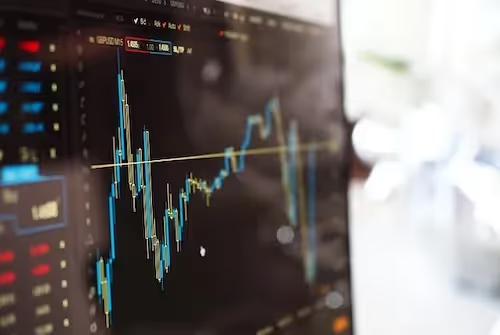TL;DR
Unlock powerful audience insights on Instagram in 2025 by using the updated Instagram Graph API. This API allows marketers, brands, and developers to analyze Instagram followers data, influencer demographics, engagement trends, and more. It empowers smarter campaigns and partnerships. Learn what’s changed in the API, how to extract actionable analytics, best practices, and key stats shaping Instagram’s audience in 2025.
Understanding the Instagram Graph API: An Overview
Before diving into data analysis, it’s crucial to understand what the Instagram Graph API is and why it’s the main way to access Instagram data for professional accounts.
What Is the Instagram Graph API?
- Meta’s official API for business and creator Instagram accounts
- Designed for audience insights, engagement metrics, and content performance
- Enhanced privacy and compliance for data handling in 2025
- Updates have removed legacy fields and added simplified data structures
Learn more about influencer vetting and brand safety for Instagram here
What’s New in the Instagram Graph API (2025)?
Instagram Graph API features and policies are regularly updated. Here are the key enhancements in 2025.
Key Changes for 2025 in the Instagram Graph API
- New endpoints and fields: Better access to IG User, Media, and Comments
- Deprecated metrics: Legacy fields and outdated timeframes removed
- Small account data restrictions: Follower metrics hidden for <100 followers
- Privacy-first demographic reporting: Top 45 audience segments only
- Reporting delay: Up to 48 hours for demographic metrics
These updates improve both the quality of insights and platform security.
Getting Started: Prerequisites and Setup
To extract Instagram data analytics, begin with a proper setup of your developer environment.
Setting Up for the Instagram Graph API
- Switch your Instagram to a Business or Creator account
- Link it to a Facebook Page
- Set up a Facebook Developer account
- Create an app and request Instagram Graph API permissions
- Generate a valid Access Token, refreshed every 60 days
Once configured, you can begin querying the API for audience insights.
Core Endpoints for Audience Insights
Accessing the right API endpoints ensures efficient data collection.
Essential Instagram Audience Endpoints
- /user/insights: Reach, impressions, profile views, follower growth
- /media/insights: Engagement metrics for posts and stories
- /user/followers: Follower count and trends
- /user/audience_demographics: Age, gender, location of followers
- /user/recent_media: Content performance of latest posts
Explore advanced social listening features here.
Step-by-Step: Extracting Instagram Audience Demographics
Instagram audience demographics are valuable for content planning and influencer vetting.
How to Retrieve Instagram Audience Demographics
Requesting Account Insights
Use /user/insights and request fields like:
- Follower growth
- Gender distribution
- Age breakdown
- City and country location
- Languages spoken
Analyzing Demographic Data
- Age Groups: 18–24, 25–34 are typically dominant
- Gender Breakdown: Evaluate gender balance
- Location: Identify high-performing markets
Example: Age and Gender Data Table
Gender split: 50.6% male, 49.4% female
Native Instagram Insights vs. Graph API: A Comparison
Knowing when to use the built-in app tools or the API helps marketers scale.
Native Insights Versus API Access: Which Is Best?
For automation and scale, the Graph API is the superior choice.
Key Audience Insights You Can Extract
Instagram Graph API reveals rich, actionable audience data.
Types of Instagram Audience Analytics
Audience Demographics
- Age, gender, location trends
- Most valuable segments
- Demographic shifts over time
Engagement Metrics
- Likes, saves, comments, shares
- Post-level and story-level performance
- Reach and impressions
Follower Growth Trends
- Daily or monthly changes
- Campaign impacts on follower growth
- Audience retention signals
Improved Influencer Vetting
Going beyond vanity metrics with API-based data enables smarter influencer selection.
Instagram Influencer Demographics: Stat-Based Insights
- Nano & micro-influencers offer higher engagement
- Majority of Instagram’s active users are 18–34
See our full guide on influencer marketing demographics here.
Best Practices for Using the Instagram Data API in 2025
Use these methods to streamline your data workflows and improve outcomes.
Optimizing Your Workflow with the Instagram API
- Always update to the latest API version
- Cache data to handle delays
- Respect rate limits
- Document API requests
- Audit follower quality regularly
- Integrate data into BI or marketing dashboards
Actionable Use Cases for Brands, Marketers, and Developers
Instagram Graph API supports a range of marketing and intelligence strategies.
Top Applications for the Instagram Graph API
- Campaign Measurement: Track influencer and content ROI
- Content Optimization: Tailor creative based on demographic shifts
- Brand Safety: Evaluate influencer audience integrity
- Growth Tracking: Spot organic vs inorganic trends
Read more on successful influencer vetting here.
Instagram Audience Trends & Key Stats for 2025
Stay ahead with updated audience behavior and platform data.
Important Instagram Audience Stats (2025)
- Ad reach: 1.74 billion users
- Annual growth: +90.8M users (+5.5%)
- Age: 60% under 35; 31.7% are 18–24
- Gender split: 50.6% male, 49.4% female
- Engagement: Down 28% YoY; carousel posts perform best
- Nano-influencers: Represent 75.9% of creators
- Shopping behavior: 61% discover products on Instagram
Key Pitfalls & Limitations with the 2025 Instagram Data API
Be aware of constraints before building your integrations.
What to Watch Out For with the 2025 Graph API
- Deprecated metrics: Always check Meta’s changelogs
- No data for <100 followers: Applies to follower count & demographics
- Partial demographic access: Only top segments returned
- 48-hour data lag: Plan queries accordingly
- User consent: Required for every business/creator account
FAQs:
What’s the difference between the Instagram Graph API and earlier Instagram APIs?
The latest Graph API is more secure, restricted to business/creator accounts, and structured for deeper, more compliant insights compared to legacy APIs.
Can I access data for any Instagram account?
No, only business and creator profiles that explicitly authorize your app.
What audience demographics are available via the API?
Age ranges, gender split, geographic location (country/city), and languages—with some privacy-focused limitations.
How are deprecated metrics or endpoints managed?
Regularly review Meta’s developer documentation and upgrade your codebase according to announced changes.
How quickly does audience data refresh in the API?
Most stats update daily, but demographic analytics can lag by up to 48 hours.
Are there data rate or access limits when querying the API?
Yes, Meta enforces rate limits—plan your queries and data syncing accordingly.
How can Instagram API data be combined with other analytics?
Export API data and unify with multi-channel analytics dashboards or use third-party social listening solutions.
Can API audience data be used for influencer vetting and brand safety?
Absolutely—demographics from the API help verify influencer audiences and should be integrated with broader vetting platforms whenever possible.










.avif)
.avif)
.avif)
.avif)